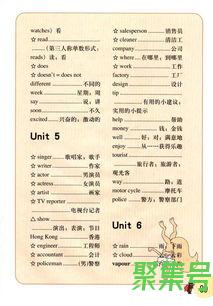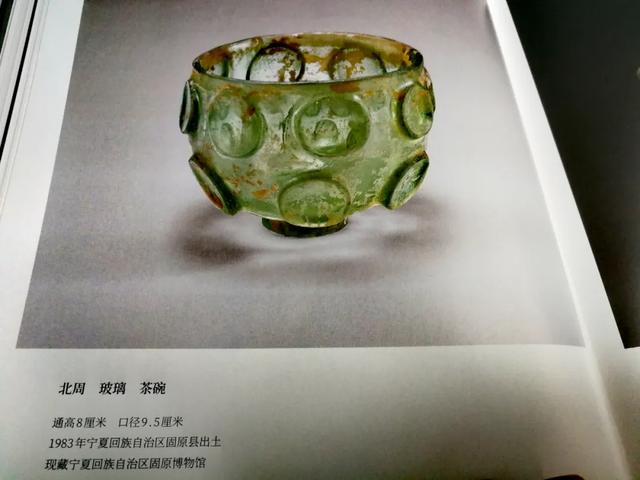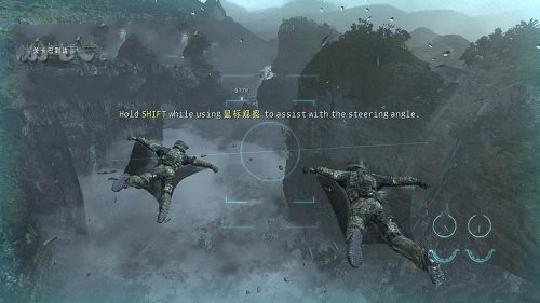1.求六年级上册英语重点单词 人教版的
Unit 1
by (经,乘) foot(脚) bike(自行车) bus(公共汽车) train(火车) how(怎样) go to school(上学) traffic(交通) traffic light(交通灯) traffic rule(交通规则) stop(停,停车站)wait(等待) get to(到达)
Unit 2
library(图书馆) post office(邮局) hospital(医院) cinema(电影院) bookstore(书店) where(在哪里,到哪里) please(请) next to(与…相邻) turn(转弯) right (右边) left(左边) straight(成直线地) then (然后)
Unit 3
next week(下周) this morning(今天上午) this afternoon(今天下午) this evening (今天晚上) comic book(漫画书) post card(明信片) newspaper(报纸) buy(购买)
Unit 4
hobby(爱好) ride a bike--riding a bike(骑自行车) dive--diving(跳水) play the violin—playing the violin(拉小提琴) make kites—making kites(制作风筝) collect stamps—collecting stamps(集邮) live –lives(居住) teach--teaches(教) go--goes(去) watch--watches(看) read--reads(读,看) does doesn't=does not
Unit 5
singer(歌唱家,歌手) writer(作家) actor(男演员) actress(女演员) artist(画家) TV reporter(电视台记者) engineer(工程师) accountant(会计) policeman(男警察) salesperson(销售员) cleaner(清洁工) where(在哪里,到哪里) work(工作)
Unit 6
rain(雨) cloud (云) sun(太阳) stream(河,溪) come from(来自,从…来) seed(种子) soil(土壤) sprout (苗,芽) plant(植物,种植) should (应该) then(然后)
2.小学六年级英语上册(人教版)重点及语法知识改写句子之类的重点复
小升初小学英语语法复习要点归纳资料介绍: 一、名词复数规则 1.一般情况下,直接加-s,如:book-books, bag-bags, cat-cats, bed-beds 2.以s. x. sh. ch结尾,加-es,如:bus-buses, box-boxes, brush-brushes, watch-watches 3.以“辅音字母+y”结尾,变y为i, 再加-es,如:family-families, strawberry-strawberries 4.以“f或fe”结尾,变f或fe为v, 再加-es,如:knife-knives 5.不规则名词复数: man-men, woman-women, policeman-policemen, policewoman-policewomen, mouse-mice child-children foot-feet,.tooth-teeth fish-fish, people-people, Chinese-Chinese, Japanese-Japanese 二、一般现在时 1.一般现在时表示经常或习惯性的动作,也可表示现在的状态或主语具备的性格和能力。
2.一般现在时中,没有be动词和情态动词,主语为第三人称单数的肯定句,动词要按规则加上s,主语是非第三人称单数的肯定句,动词用原形。 3.在一般现在时中,句中有be动词或情态动词时,否定句在be动词和情态动词后加not,一般疑问句将be动词或情态动词放在句首。
4.在一般现在时中,句中没有be动词或情态动词时,主语为第三人称单数的否定句在动词前加does+not (doesn't),一般疑问句在句首加does,句子中原有动词用原形;主语为非第三人称单数,否定句用do+not (don't),一般疑问句在句首加do,句子中动词用原形。 动词+s的变化规则 1.一般情况下,直接加-s,如:cook-cooks, milk-milks 2 .以s. x. sh. ch. o结尾,加-es,如:guess-guesses, wash-washes, watch-watches, go-goes 3.以“辅音字母+y”结尾,变y为i, 再加-es,如:study-studies 三、现在进行时 1.现在进行时表示现在正在进行或发生的动作,也可表示当前一段时间内的活动或现阶段正在进行的动作。
2.现在进行时的肯定句基本结构为be+动词ing. 3.现在进行时的否定句在be后加not。 4.现在进行时的一般疑问句把be动词调到句首。
动词加ing的变化规则 1.一般情况下,直接加ing,如:cook-cooking 2.以不发音的e结尾,去e加ing,如:make-making, taste-tasting 3.如果末尾是一个元音字母和一个辅音字母,双写末尾的辅音字母,再加ing,如:run-running, stop-stopping 四、be going to 1.be going to 表示将要发生的事或打算、计划、决定要做的事情。 2.肯定句:be going to +动词原形,如:Jim is going to play football. 否定句:be not going to +动词原形,如:Jim is not going to play football. 一般疑问句:把be动词调到句首,如:Is Jim going to play football? 特殊疑问句:疑问词+be+主语+going to+动词原形?如:What is Jim going to do? 疑问词当主语时:疑问词+be+going to+动词原形?如:Who is going to play football? 五、一般过去时 1.一般过去时表示过去某个时间发生的动作或存在的状态,常和表示过去的时间状语连用。
一般过去时也表示过去经常或反复发生的动作感谢。 2.Be动词在一般过去时中的变化: ⑴am 和is在一般过去时中变为was。
(was not=wasn't)。
3.人教版小学英语三至六年级重点句子大全,上下册,所有的重点句,
三上:
Whai's your name?
My name's Chen Jie.
This is John.
Mice to meet you.
How are you?
I'm fine,thank you.
Let's paint.
Great.
Look!I have a rabbit.
Cool.
May I have a look?
Sure.Here you are.
I like hamburgers.
Have some French fries.
Thank you.
Can I have some chicken?
Sure.,Here you are.
How old are you?
I'm 9.
How many balloons?
4.
4.小学六年级上册英语重点词句
PEP六年级上册四会单词Unit 1:by (经……,乘……) foot(脚) bike(自行车) bus(公共汽车) train(火车) how(怎样) go to school(上学) traffic(交通) traffic light(交通灯) traffic rule(交通规则)stop(停;停车站) wait(等;等待) get to(到达) by plane(乘飞机) by ship(乘轮船) by subway(乘地铁)Unit 2:library(图书馆) post office(邮局) hospital(医院) cinema(电影院) bookstore(书店)turn(转弯) then(然后) where(在哪里,到哪里) please(请) next to(与……相邻) turn right (向右转) turn left(向左转) go straight(笔直走) north(北) south(南) east(东) west(西)Unit 3:next week(下周) this morning(今天上午) this afternoon(今天下午) this evening (今天晚上) comic book(漫画书) post card(明信片) newspaper(报纸) buy(购买)Unit 4:hobby(爱好) ride a bike—riding a bike(骑自行车) play the violin—playing the violin(拉小提琴) dive—diving(跳水) make kites—making kites(制作风筝) collect stamps—collecting stamps(集邮) live—lives(居住) teach—teaches(教) go—goes(去) watch—watches(看) read—reads(读,看) does(助动词,无义) doesn't=does notUnit 5:singer(歌唱家,歌手) writer(作家) actor(男演员) actress(女演员) artist(画家)TV reporter(电视台记者) engineer(工程师) accountant(会计) salesperson(销售员) policeman(男警察) cleaner(清洁工) where(在哪里;到哪里) work(工作)Unit 6:rain(雨;下雨) cloud (云;云彩) sun(太阳) stream((小)河;(小)溪) come from(来自……;从……来) seed(种子) soil(土壤) sprout (苗;芽;嫩芽) plant(植物;种植) should (应该) then(然后)PEP六年级上册三会单词a pair of(一双) always(总是;一直)dictionary(词典;字典)magazine(杂志) tomorrow(明天)excuse me (对不起) fun(快乐;乐趣) go to the cinema(去看电影) look(看上去) month(月份;月) read a magazine(阅读杂志) science museum(科学博物馆) shoe store(鞋店) show(展览;演出;表演;节目) take(乘坐) take a trip(去旅行) tell(告诉) tonight(今晚) vapour(蒸汽;水汽) want(想要)with(同……;和……) know(知道) minute(分钟) again(再一次;又;再)PEP六年级上册四会句型Unit 1How do you go to school, Sarah? 萨拉,你怎样去上学?Usually I go to school on foot. 通常我步行去上学。
Sometimes I go by bike.有时候,我骑自行车去。How can I get to Zhongshan Park? 我怎样能到达中山公园?You can go by the No.15 bus.你可以乘15路公交车去。
Unit 2Where is the cinema, please? It's next to the hospital.请问,电影院在哪里?它与医院相邻。Turn left at the cinema, then go straight. It's on the left. 在电影院处向左转,然后直行。
它在左边。Unit 3What are you going to do on the weekend? 周末你打算干什么?I'm going to visit my grandparents this weekend.这个周末我打算拜访我的祖父母。
Where are you going this afternoon? I'm going to the bookstore.今天下午你打算去哪里?我打算去书店。What are you going to buy? 你打算买什么? I am going to buy a comic book.我打算买一本漫画书。
Unit 4What's your hobby? 你的爱好是什么? I like collecting stamps. 我喜欢集邮。He likes collecting stamps, too.他也喜欢集邮。
Does she teach English? No, she doesn't. 她教英语吗?不,她不教。Does she teach you math? Yes, she does. 她教你数学吗? 是的,她教数学。
Unit 5 What does your mother do?你的妈妈是干什么的? She is a TV reporter.她是一位电视工作者。Where does she work?她在哪里上班? She works in a school.她在一所学校上班。
How does she go to work? 她怎样去上班?She goes to work by bus.她坐公交车去上班。Unit 6Where does the rain come from? It comes from the clouds.雨来自哪里? 它来自于云朵。
How do you do that? 你怎样做那件事呢?What should you do then?接下来,你应该做什么呢?PEP六年级上册三会句型1. My home is near. 我的家很近。2. What about you?你呢?3. Look at the traffic lights.看交通灯。
4. Remember the traffic rules.记住交通规则。5. Stop at a red light.红灯停。
6. Wait at a yellow light.黄灯等。7. Go at a green light. 绿灯行。
8. Can I go on foot? Sure, if you like. It's not far. 我能步行去嘛?当然,如果你喜欢。它不远。
9. Where is the …? It's near the …10. Excuse me, is there a … near here? Yes, there is.打扰一下,在这附近有没有一家…?是的,有。11. Is it far from here? No, it's not far.它离这儿远吗? 不,它不远。
12. –Thank you. –You're welcome.谢谢,不客气。13. Where is the …? …在哪里?It's east/west/south/north of the …它在…的东边,西边,南边,北边。
14. When are you g。
5.人教版小学六年级英语上册第一单元重点句子是哪些
1、☆Where is the museum shop?博物馆的商店在哪儿?☆ ☆2、It's near the door. 在大门附近。
☆ 3、I want to buy a postcard. 我想买一张明信片。 4、I want to send it today. 我想今天寄出。
5、I'll ask. 我去问问。 6、Wow, a talking robot! 哇!一个讲话机器人。
7、What a great museum! 好棒的一家博物馆! 8、There is a pet hospital in my city. 在我的城市有一家宠物医院。 9、Wu Yifan and Robin are looking at some robots. 吴一凡和罗宾正在看一些机器人。
☆10、How can we get there?我们怎么到那儿?☆ ☆11、Turn left at the bookstore.在书店左转。☆ 12、I know a great Italian restaurant. 我知道一家很棒的意大利餐厅。
13、Chen Jie is trying to be a tour guide for Oliver in Beijing.。
6.六年级上册人教版英语重点单词O(∩
Unit1:星号单词:by 经……;乘……foot 脚bike 自行车bus 公共汽车train 火车how 怎样go to school 上学traffic 交通traffic light 交通灯traffic rule 交通规则stop 停;停车站wait 等;等待get to 到达粗体单词:plane 飞机ship 船;舰subway 地铁三角单词:then 然后always 总是;一直know 知道其他单词:fifth 第五remember 记住find 寻找;找到difference 不同;区别same 相同的every 每个;所有的country 国家mean 意思是drive 驾驶right 右边的side 边England 英国Australia 澳大利亚however 但是left 左边的if 如果must 必须Unit2:星号单词:library 图书馆post office 邮局hospital 医院cinema 电影院bookstore 书店where 在哪里;到哪里please 请next to 与……相邻turn 转弯right 右边left 左边straight 成直线的then 然后粗体单词:science museum 科学博物馆north 北south 南east 东west 西三角单词:excuse me 对不起want 想要a pair of 一双minute 分钟tell 告诉take 乘坐其他单词:far 远supermarket 超市bank 银行after scholl 放学以后buy 购买shoe store 鞋店get off 下车twelfth 第十二party 聚会;晚会start 开始look for 寻找Unit3:星号单词:nect week 下周this morning 今天上午this afternoon 今天下午this evening 今天晚上comic book 漫画书post card 明信片newspaper 报纸buy 购买粗体单词:tonight 今晚tomorrow 明天take a trip 去旅行read a magazine 阅读杂志go to the cinema 去看电影magazine 杂志dictionary 词典;字典三角单词:shoe store 鞋店普通单词:theme park 主题公园the Great Wall 长城busy 忙碌的together 一起的fruet stand 水果摊pet shop 宠物商店need 需要plant 植物else 其他;另外shop 商店Unit4:星号单词:hobby 爱好ride a bike (ing 形式:riding a bike)骑自行车dive (ing 形式:diving)跳水play the violin(ing 形式:playing the violin)拉小提琴make kites(ing 形式:making the kites)制作风筝collect stamps(ing 形式:collecting stamps)集邮live(第三人称单数形式:libes)居住;住teach(第三人称单数形式:teaches)教watch(第三人称单数形式:watches)看read(第三人称单数形式:reads)读;看doesdoesn't=does not粗体单词:无三角单词:look 看上去 fun 快乐;乐趣with 通……;和……普通单词:show 展览pen pal 笔友dear 亲爱的twin 双胞胎之一something 某事物must (作出逻辑判断)一定;肯定TV reporter 电视台记者diffrrent 不同的week 星期;周say 说;讲excited 兴奋的;激动的Unit5:星号单词:singer 歌唱家;歌手writer 作家actor 男演员actress 女演员atrist 画家TV reporter 电视台记者engineer 工程师accountant 会计policeman (男)警察salesperson 销售员cleaner 清洁工where 在哪里;到哪里work 工作粗体单词:无三角单词:show 演出;表演;节目普通单词:Hong Kong 香港company 公司factory 工厂design 设计tip 有用的小建议;实用的小提示help 帮助money 钱;金钱well 好;对;满意地enjoy 从……获得乐趣tourist 旅行者;旅游者;观光者way 路;道motor cycle 摩托车police 警方;警察部门Unit6:星号单词:rain 雨;下雨cloud 云;云彩sun 太阳stream (小)河;(小)溪come from 来自……;从……来seed 种子soil 土壤sprout 苗;芽;嫩芽plant 植物;种植shoeld 应该then 然后粗体单词:vapour 蒸汽;水汽三角单词:again 再一次;又;再普通单词:shine 照耀become 变成little 小的drop (液体的)珠;滴wake up 醒;醒来feel 感觉到;感受到think 想;思考meet 遇见;碰见(某人)high 高的other 其他的;另外的;别的fall 落下;跌落;降落;掉下down 从高到低;向下into 进入;到……里面come out 露出;出现garden 花园easy 简单的put 放;放置several 一些(但不多);几个day 天see 看见pot 锅;碗;瓢;盆lovely 可爱的;美丽的make sure 核实或查明某事物get 得到month 月份;月old (某)年龄的still 仍然;依旧;还是;come on 用于祈使句以鼓励某人做某事,尤指促其加速或努力试一试hardly 几乎没有;几乎不希望对你有帮助!祝你学业有成,马到成功。
7.人教版小学六年级上册英语第一单元重点单词是哪些
Unit 1 How do you go to school? 一、重点短语: by plane 坐飞机 by ship 坐轮船 on foot步行 by bike 骑自行车 by bus 坐公共汽车 by train 坐火车 traffic lights 交通灯 traffic rules交通规则 go to school 去上学 get to 到达 get on上车 get off下车 Stop at a red light. 红灯停 Wait at a yellow light. 黄灯等 Go at a green light. 绿灯行 二、重点句型: 1.How do you go to school? 你怎么去上学? 2.Usually I go to school on foot. Sometimes I go by bus. 通常我步行去上学。
有时候骑自行车去。 3.How can I get to Zhongshan Park ? 我怎么到达中山公园? 4.You can go by the No. 15 bus. 你可以坐15路公共汽车去。
三、重点语法: 1、There are many ways to go somewhere.到一个地方去有许多方法。 这里的ways一定要用复数。
因为there are是There be句型的复数形式。 2、on foot 步行 乘坐其他交通工具大都可以用介词by…, 但是步行只能用介词on 。
4、go to school的前面绝对不能加the,这里是固定搭配。 5、USA 和 US 都是美国的意思。
另外America也是美国的意思。 6、go to the park 前面一定要加the. 如果要去的地方有具体的名字,就不能再加the , 如果要去的地方没有具体名字,都要在前面加the. ( go to school除外。
) 7、How do you go to …?你怎样到达某个地方?如果要问的是第三人称单数,则要用:How does he/she…go to …? 8、反义词: get on(上车)---get off(下车) near(近的)—far(远的) fast(快的)—slow(慢的) because(因为)—why(为什么) same(相同的)—different(不同的) 9、近义词: see you---goodbye sure---certainly---of course 10、频度副词: always 总是,一直 usually 通常 often经常 sometimes 有时候 never 从来不 Unit 2 Where is the science museum? 一、重点短语: library 图书馆 post office 邮局 hospital医院 cinema 电影院 bookstore书店 science museum科学博物馆 turn left向左转 turn right 向右转 go straight 直行 north北 south南 east东 west西 next to靠近、与……。相邻 then 然后 二、重点句型: 1.Where is the cinema, please? 请问电影院在哪里? 2.It's next to the hospital. 它与医院相邻。
3.Turn left at the cinema, then go straight. It's on the left. 在电影院向左转,然后直行。它在左边。
三、重点语法: 1、问路时要用"excuse me对不起,打扰一下" 2、描述路时可以用顺序词: first首先, next接着, then然后 3、near 表示在附近,next to 表示与…相邻。它的范围比near小。
in front of 在。
前面 behind 在……后面 4、在左边,在右边介词要用on, on the left/on the right,但是东西南北,介词要用in, in the north/east/south/west. 5、for 表示持续多长时间,当表示做某事多长时间都要用for.? 如:Walk east for 5 minutes.?? Then walk straight for three minutes. 6、乘几路车可以用by the No.301 bus, 注意No.中N要大写,后面要加点。
如果要用动词可以用take,例如take the No.301 bus. 7、当表示某个地方在另一个地方的哪一方向时,要用介词of。如:the hospital is east of the cinema. 医院在电影院的东边。
8、表示在哪儿转时,用介词at。 如:Turn left at the bank。
在银行左转。 9、find表示"找到",强调找的结果。
Look for 表示"寻找",强调找的过程。 10、在几点前面要用介词at,如at 7p.m. 11、英文的书信与中文的书信不完全一样: 开头:英语是在人称后面加逗号,中文是加冒号。
正文:英语是空三个或者五个字母写,中文要空两个中文字格。 结尾:英语的落款与人名是顶格而且是分开写的。
中文则是另起一行,放在一起且稍靠后一点儿的地方。英文名字的书写要注意下。
12、近义词: bookstore==bookshop 书店 go straight==go down直行 after school==after class 放学后 13、反义词或对应词: here (这里)---there(那里) east(东)---west(西) north(北)---south(南) left(左)---right(右) get on (上车)---get off(下车) 14、in the front of…表示在…的前面,是指在该地方的范围内,in front of而则表示在该地方的范围外。如:in front of our classroom是指在教室的外面而且在教室的前面。
而in the front of classroom则是指在教室里的前面。 15. be far from…表示离某地远。
be 可以是am , is ,are. My home is not far from school.我家离学校不远。
8.六年级上册人教版的重点句型
自己搜索吧……中小学教育网之类的
PEP六年级上册三会句型
1. My home is near. 我的家很近。
2. What about you?你呢?
3. Look at the traffic lights.看交通灯。
4. Remember the traffic rules.记住交通规则。
5. Stop at a red light.红灯停。
6. Wait at a yellow light.黄灯等。
7. Go at a green light. 绿灯行。
8. Can I go on foot? Sure, if you like. It's not far. 我能步行去嘛?当然,如果你喜欢。它不远。
9. Where is the …? It's near the …
10. Excuse me, is there a … near here? Yes, there is.打扰一下,在这附近有没有一家…?是的,有。
11. Is it far from here? No, it's not far.它离这儿远吗? 不,它不远。
12. –Thank you. –You're welcome.谢谢,不客气。
13. Where is the …? …在哪里?
It's east/west/south/north of the …它在…的东边,西边,南边,北边。
14. When are you going? I am going at 3 o'clock.你打算什么时候去?我打算3点钟去。
15. Can he go with us? Sure.他能和我们一起去嘛?当然。
16. Let's go together.让我们一起去吧。
17. There is a stamp show on Sunday.在星期天,有一个邮票展。
18. She is a teacher. She teaches math.她是一位老师,她教数学。
19. Does your pen pal live in Shanghai?你的笔友住在上海吗?
No, he doesn't. He lives in Beijing. 不,他不住上海。他住在北京。
20. Where does she work? She works in a car company.她在哪里上班?她在一家汽车公司上班。
21. How does she go to work? She goes to work by bus.她怎样去上班呢?她坐公交车去上班。
22. Where does the … come from? It comes from the … …来自于哪里?它来自于…
23. How can the water become vapour?水如何能变成蒸汽呢?
The sun shines and the water becomes vapour.在太阳的照射下,水就变成了蒸汽。
24. How do you do that?你怎样做那件事呢?
First, put the seeds in the soil.首先,把种子放进土壤里。
25. It's easy.它很简单。
26. What should you do then?接下来你应该做什么呢?
Water them. In several days, you can see a sprout.给它们浇水,几天后,你就能看见一株幼苗。
27. First, …Then, …Next, …At last, …首先,然后,接下来,最后
来源:



